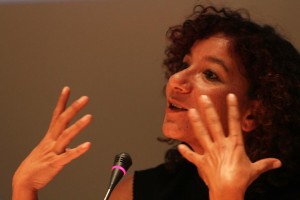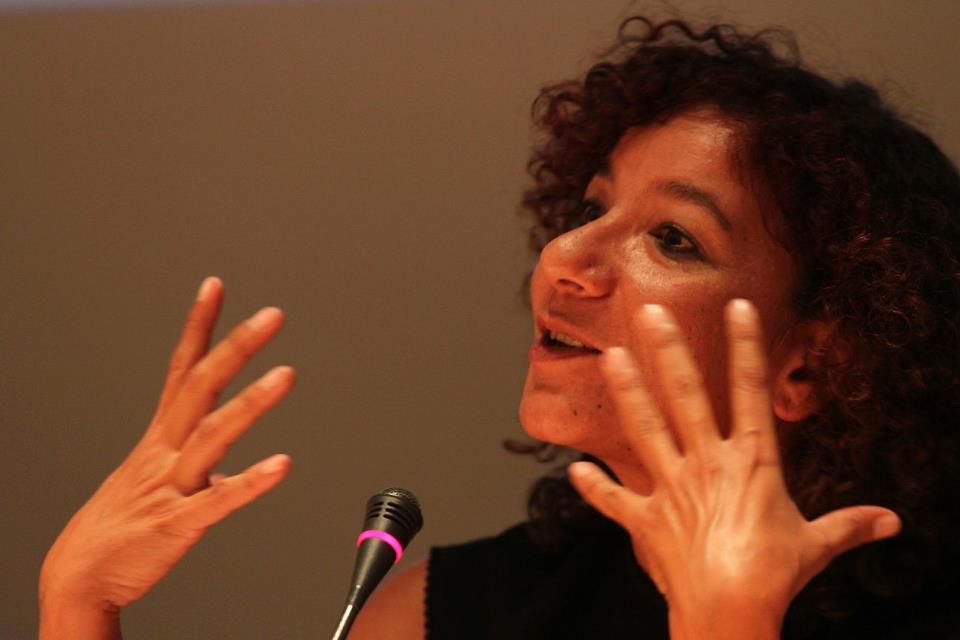
(Photo Courtesy of Mona Prince)
Fifteen political movements and feminist groups condemned on Wednesday the “savage campaign… and systematic disenfranchisement” of Mona Prince by Suez Canal University’s administration.
A professor at the university’s Faculty of Education, Prince was accused by her students of contempt of religion in April. She was accordingly referred to disciplinary investigation by the university administration.
In a joint statement, the political movements and feminist groups criticised the university administration’s silence and lax attitude towards the matter, adding their approach to the problem reveal their bias for eliminating creativity and freedom of opinion.
The movements and groups called on the Suez Canal University to reclaim its prime role in promoting discussion and debate and accepting differing opinions in order to contribute to the development of its students’ social and intellectual skills.
“We are in full solidarity with Prince in her right to defend her unique style and important role in upgrading the students’ intellectual skills and limiting imitation,” the statement read. They also demanded that the university administration abandon its “blurry attitude” and return to objectivity and neutrality to preserve the sacredness of their message and regain their position.
The statement was signed by the women’s and rights and freedoms’ committees in the Egyptian Social Democratic Party (ESDP) as well as the Social Popular Alliance Party’s committee in Fayoum. A number of feminist groups also signed the statement, including Nazra for feminist studies, Fouada Watch, I Saw Harassment, and the New Woman Institution.
A number of public figures also personally signed the statement, including human rights lawyer Ragia Omran, National Council for Women’s Complaints Department head Fatma Khafagy, and ESDP leading figures Ihab Al-Kharrat, Farid Zahran, Ahmed Fawzy and Hana Abul Ghar.
This is not the first time Prince’s accusation was criticised. The Egyptian Initiative for Personal Rights and the Association for Freedom of Thought and Expression condemned the referral of Professor Prince to disciplinary investigation in late April.
Prince teaches a course in conversation, and before her controversial class, she and her pupils had agreed to discuss sectarian strife in Egypt. Prince showed posters put up at the university by Salafi students that said “Shi’a are the enemy” and told her students that this was an example of sectarianism.
Following the lecture, students submitted complaints accusing her of contempt of religion, and Prince said she had received death threats from some.
On 16 April the Dean of the Faculty of Education called Prince and told her that she should not come to the university in case she could not be protected from students’ reactions.
Prince denied the accusations made in the complaints, saying they stemmed from her discussion with students about sectarianism.


